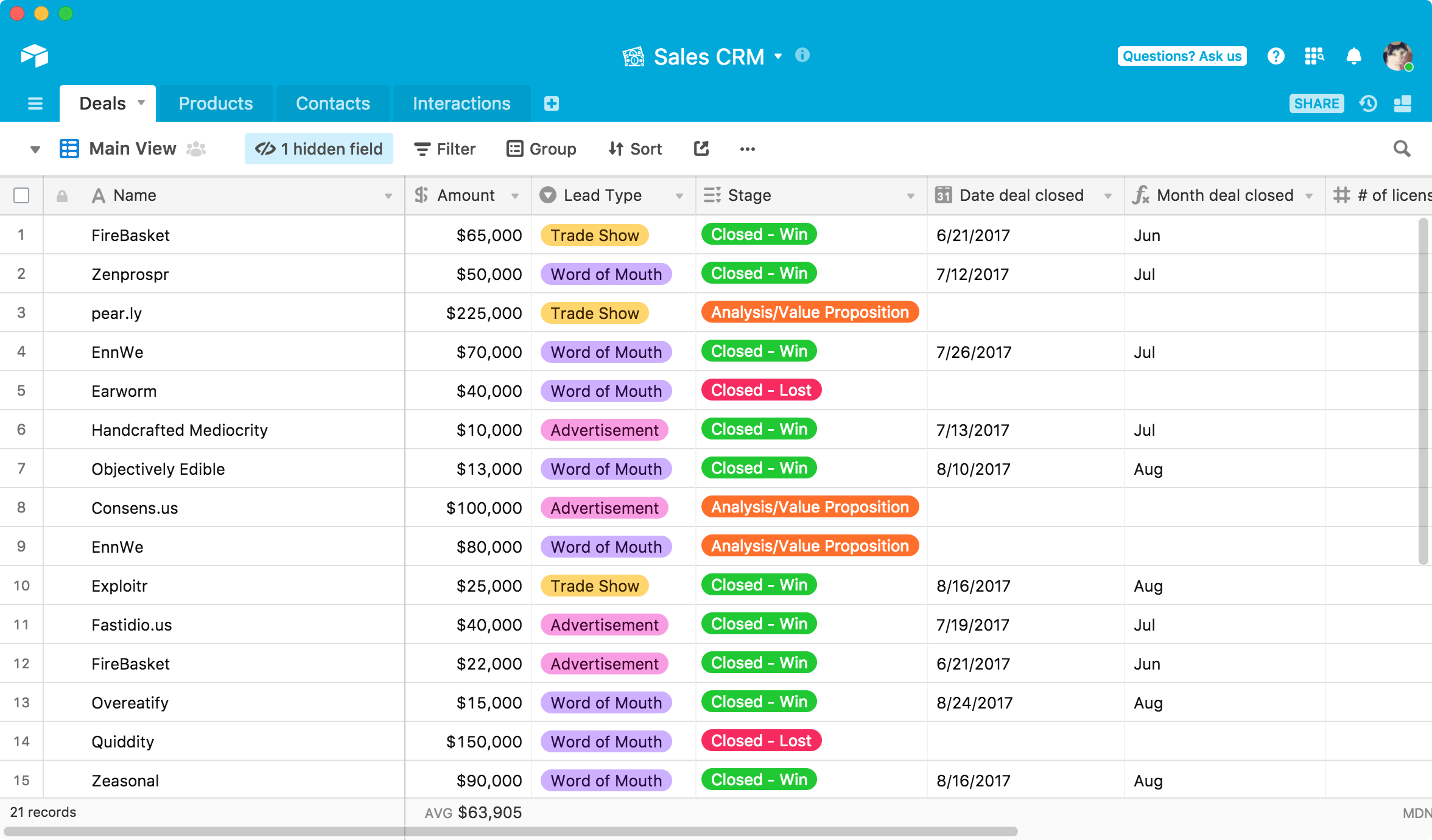By Devin Renspie
In times where technology is allowing more employees and companies to work from home (and a pandemic is forcing this remote form of working), it’s especially important that employers implement organized online databases so that every employee is on the same page, no matter where they are working from. This semester, I am interning with Olivia Management remotely, and I feel I owe a lot of my ability to work efficiently while away from the office to the time that my supervisors have spent creating ‘bases’ that contain all the information relevant to our artists and our processes in Airtable. Combined with Asana, another software we use, I am able to jump right into whatever task is thrown my way.
What is Airtable?
As the title suggests, Airtable is a software that combines features of spreadsheets and databases. I like to think of it as a more-intuitive version of Microsoft Excel or Google Sheets. In addition to creating records with just words and numbers, Airtable allows users to implement fields with features such as file attachments, checkboxes, drop-downs, and more. Moreover, users can make it so records can be grouped by different criteria and even linked within other records. The best part is, Airtable has apps for every device and supports real-time collaboration and commenting, meaning you can keep the rest of your team or your devices organized anytime, anywhere.
A quick look at the variety of field options that Airtable supports.
How Olivia Management Uses Airtable
At Olivia Management, we have multiple bases to organize information that we need to manage our artists’ various accounts and aspects of their careers. For example, we have a base dedicated to all their (and our!) social media logins, which is by far the most helpful base we have, in my opinion. Other useful bases we have include a catalog of our artists’ releases, a database of all our artists’ upcoming tour dates, and industry contacts that we have obtained over the years.
Get Started With It!
Now that I’ve shared a bit about how Airtable has helped us stay organized, I implore you to think about what kind of bases would help you or your company stay on top of what you do. If you’re not yet totally convinced that you’d benefit from such a tool, Airtable has a free version that contains all of the essential features I covered in this article! Although subscription plans include features like greater storage space, more aesthetic options, and tiered access to bases and records, the free version is a good option if you or your company are just looking for a way to create user-friendly spreadsheets and databases that are synced in real-time.
You can sign up for an Airtable account here!



